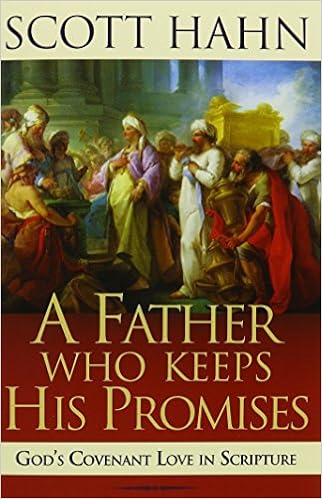We hear the word “covenant” so frequently in our Catholic faith, most notably in the Mass as the chalice is lifted up in offering as the “Blood of the new and eternal covenant,” but do we understand what a covenant really is? Do we know what it means to be in a covenant? And, by extension, do we understand how being in a covenant changes us?
Okay, so what is a covenant? Many people consider a covenant to be a contract; basically viewing it as some sort of legal agreement, whether written or spoken, that creates some sort of obligation. Close, but this isn’t horseshoes J In a contract, you have an exchange of goods/services and it’s temporary. So, I might agree to cut your grass once a week all summer for a set rate. I show up each week, cut the grass, you pay me, and when September comes our contract is done and I stop coming to your house to cut the grass. If one of us decides to not uphold our end, we might end up in court or we might just agree to dissolve the agreement. That’s a contract.
By comparison, a covenant is an exchange of persons, it continues indefinitely, and it can never be broken. The most common examples of covenants today are marriage and adoption. Both of these take people who are unrelated and make a family. Because that’s what covenants do. They form families. In fact, to the ancient Jewish people, the difference between a contract and a covenant was as vast as the difference between prostitution and marriage. In prostitution a person sells themselves for a fee and a limited amount of time in a business exchange. In marriage two people join together forever so completely that they become one and cannot be separated; according to Jesus, “So they are no longer two, but one flesh. Therefore, what God has joined together, no human being must separate.” (Matt 19:6).
So this is what a covenant is: it builds families, it is an exchange of people, it binds forever, and it can never be broken. That’s not to say covenants are never ignored or violated, but they still exist.
We enter into covenant with God at our Baptism. He lovingly welcomes us into His family and we become His sons and daughters through this sacrament. This bond is our offering of ourselves, it is forever, and it can never be broken. He will always be our Father.
 When we hear the word covenant at Mass, we should be reflecting on what Christ has done for us out of His love and desire to be in covenant with us. In fact, at the Eucharistic Prayer, the priest says, “Time and again you offered them [humanity] covenants;” God has been inviting us to His family since the beginning of creation. We just have to respond with a sincere, “Yes!”
When we hear the word covenant at Mass, we should be reflecting on what Christ has done for us out of His love and desire to be in covenant with us. In fact, at the Eucharistic Prayer, the priest says, “Time and again you offered them [humanity] covenants;” God has been inviting us to His family since the beginning of creation. We just have to respond with a sincere, “Yes!”
If you’d like to read more about covenants with God consider picking up A Father Who Keeps His Promises, by Dr. Scott Hahn, for some summer reading.